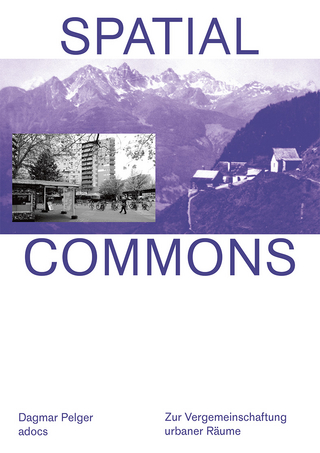
Through the Lens of Cultural Anthropology
University of Toronto Press (Verlag)
978-1-4875-0599-8 (ISBN)
- Titel ist leider vergriffen;
keine Neuauflage - Artikel merken
Addressing important and timely topics, including global climate change and the #MeToo movement, Through the Lens of Cultural Anthropology is a fresh and contemporary textbook designed to engage students in the world surrounding them. The book offers a sustained focus on language, food, and sustainability in an inclusive format that is sensitive to issues of gender, sexuality, and race. Integrating personal stories from her own fieldwork, the author brings her passion for transformative learning to students in a way that is both timely and thought-provoking.
Beautifully illustrated with over sixty full-color images, including comics and maps, the text brings concepts to life in a way sure to resonate with undergraduate readers. Through the Lens of Cultural Anthropology is supplemented by a full suite of instructor and student supports that can be accessed at lensofculturalanthropology.com.
Laura Tubelle de González is a professor of anthropology at San Diego Miramar College in Southern California.
List of Illustrations
List of Boxes
Acknowledgments
About the Author
Preface
Note to Instructors
Note to Students
1. Introduction to Cultural Anthropology
Learning Objectives
Introduction: The Lens of Cultural Anthropology?
The Culture Concept
The Field of Anthropology
Frameworks
A Brief History of Anthropological Thought
Anthropology and Colonialism
The Importance of Cultural Anthropology Today
Summary
Review Questions
Discussion Questions
2. Studying Contemporary Culture
Learning Objectives
Introduction: Studying Culture
What Are the Parts of Culture?
Ethnocentrism and Cultural Relativism
Cultural Adaptation and Maladaptation
The Functions of Culture
Child Rearing
Fieldwork Methods and Ethics
Applied Anthropology
Summary
Review Questions
Discussion Questions
3. Race and Ethnicity
Learning Objectives
Introduction: Is Race Real?
Human Race Is Not Biological
Biocultural Connections: Prejudice and Health
History of the Race Concept
Defining Ethnicity
The Privilege of Fair Skin
Discrimination Based on Caste
Summary
Review Questions
Discussion Questions
4. Language
Learning Objectives
Introduction: Language and Culture
Definition of Language
Language Origins
Language and Communication: Signs and Symbols
What Does a Linguistic Anthropologist Do?
Communication beyond Words
Ethnolinguistics
Language Use in the Digital Age
Language Loss
Summary
Review Questions
Discussion Questions
5. Food
Learning Objectives
Introduction: Food-Getting Practices
Adaptive Strategies: Food Foragers and Food Producers
Food Foragers
Food Producers: Horticulturalists
Food Producers: Pastoralists
Food Producers: Industrialism
Globalization of Food
The Human Diet
Summary
Review Questions
Discussion Questions
6. Economic Resources
Learning Objectives
Introduction: Who Gets What and How?
What Drives Economic Decisions?
Production: Making the Things People Need and Want
Distribution: How People Get the Things They Need and Want
Consumption: How People Use the Things They Need and Want
Summary
Review Questions
Discussion Questions
7. Marriage and Family
Learning Objectives
Introduction: Marriage and Family
Defining Marriage
Spouses: How Many and Who Is Eligible?
Family Residence Patterns
Marriage as Economic Exchange
Kinship
Summary
Review Questions
Discussion Questions
8. Gender and Sexuality
Learning Objectives
Introduction: Social Roles Based on Sex and Gender
Defining Sex, Gender, and Sexuality
Sexual Identity
Masculine and Feminine
Gender Identity
Gendered Body Modifications
Gendered Speech
Gender Inequality
Gendered Occupations
Summary
Review Questions
Discussion Questions
9. Politics and Power
Learning Objectives
Introduction: Politics and Power
Power, Authority, and Prestige
Social Controls and Conflict Resolution
Types of Political Organization
Social Inequality
Violence and War
Summary
Review Questions
Discussion Questions
10. Supernaturalism
Learning Objectives
Introduction: Religion as a Symbolic System
Defining Religion
Reasons for Supernatural Belief Systems
Sacred Roles
Religious Practitioners
Religious Resistance
Supernatural Beliefs and Cultural Expression
Summary
Review Questions
Discussion Questions
11. Illness and Healing
Learning Objectives
Introduction: Studying Concepts of Illness and Healing
Understanding Illness
Cultural Concepts of Healing
Health Inequality
Disability
Summary
Review Questions
Discussion Questions
12. Anthropology and Sustainability
Learning Objectives
Introduction: Anthropology and Sustainability
History of Human-Environment Issues
Defining Sustainability
Anthropological Approaches to Sustainability Studies
Issues in Sustainability Studies
How Can Anthropologists Help?
Summary
Review Questions
Discussion Questions
Glossary
References
Index
| Erscheinungsdatum | 22.06.2019 |
|---|---|
| Zusatzinfo | 63 Illustrations, unspecified |
| Verlagsort | Toronto |
| Sprache | englisch |
| Maße | 216 x 260 mm |
| Gewicht | 1200 g |
| Themenwelt | Sozialwissenschaften ► Ethnologie |
| Sozialwissenschaften ► Soziologie | |
| ISBN-10 | 1-4875-0599-X / 148750599X |
| ISBN-13 | 978-1-4875-0599-8 / 9781487505998 |
| Zustand | Neuware |
| Haben Sie eine Frage zum Produkt? |
aus dem Bereich


